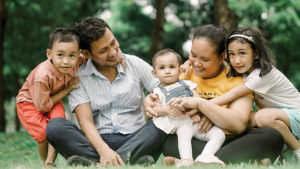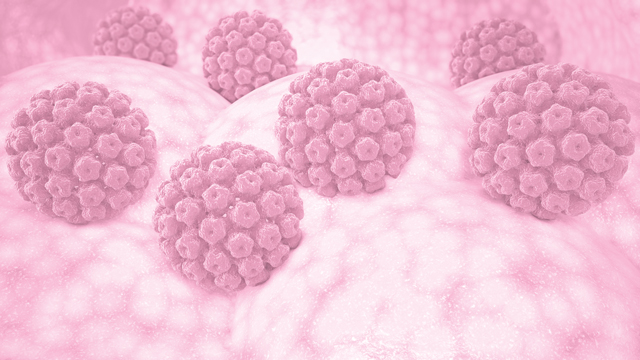Every year, more than 46,000 Americans are diagnosed with preventable cancers caused by the human papillomavirus (HPV). Today a vaccine exists that prevents the majority of HPV infections which, in turn, prevents more than 90 percent of all cancers caused by HPV.
HPV is the most common sexually transmitted infection in the United States, affecting about 79 million Americans and 14 million teenagers of all genders. There are more than 150 variants of HPV, and it often shows no symptoms. By the age of fifty, four out of five women will have been infected with HPV. The virus can lay dormant for years before it may develop into cancer in the bodies of people infected with it.
Cervical cancer is the most common risk for women with HPV, with over 11,000 new cases and 4,000 deaths each year in the United States. More than 196,000 cervical pre-cancers are also identified in the U.S. each year. Treatment for cervical cancers and pre-cancers is typically very effective, but may limit a person’s ability to have children.
While it’s true that HPV poses a much greater risk of future cancer to females than males, HPV also causes 70 percent of all throat cancer cases and 90 percent of all anal cancer cases in the United States, both of which can affect people of any gender. HPV can also cause rare but serious penile cancer in boys and men.
Who should be vaccinated for HPV?
The Centers for Disease Control (CDC) recommends that all children ages eleven to twelve get two doses of the HPV vaccine six to twelve months apart. If someone receives the vaccine at age fifteen or older, they will need three doses six to twelve months apart for the vaccine to be considered fully effective. The HPV vaccine is most effective for kids in this age group because they are more likely to be fully vaccinated before they become sexually active and at risk of contracting HPV, but the vaccine is recommended for anyone up to age twenty-six who hasn’t yet received it.
Side effects of HPV vaccination are typically mild and include pain, swelling, and redness where the shot was given, as well as headaches, tiredness, and nausea.
The HPV vaccine offers very good protection against infection with HPV, and almost complete protection against HPV-related cancers. According to the CDC, teens who are fully vaccinated against HPV are 86 percent less likely to become infected, and people in their twenties who are fully vaccinated are 71 percent less likely to become infected. The National Cancer Institute also reports that the HPV vaccine is nearly 100 percent effective at preventing cancer caused by the seven highest risk HPV variants.
 Virginia’s HPV vaccination rates among 13- to 17-year-olds have steadily increased in recent years, up from 40 percent in 2016 to 56.4 percent in 2020, but many young people are still at risk. Vaccination rates are much higher for girls (64.8 percent) than boys (48.2 percent). Originally, the HPV vaccine was proposed as a way to protect girls and women against HPV and cervical cancer, but the science shows that the vaccine is important for people of all genders. In addition to the protection it offers against throat and anal cancer, vaccination against HPV is an important way to help boys protect their future sexual partners against HPV infection and cancer throughout their lives.
Virginia’s HPV vaccination rates among 13- to 17-year-olds have steadily increased in recent years, up from 40 percent in 2016 to 56.4 percent in 2020, but many young people are still at risk. Vaccination rates are much higher for girls (64.8 percent) than boys (48.2 percent). Originally, the HPV vaccine was proposed as a way to protect girls and women against HPV and cervical cancer, but the science shows that the vaccine is important for people of all genders. In addition to the protection it offers against throat and anal cancer, vaccination against HPV is an important way to help boys protect their future sexual partners against HPV infection and cancer throughout their lives.
Protection against HPV-related cancers depends on whether a person receives the vaccine before they are exposed to the virus, which means it’s up to parents to choose this protection for their child. If you’re ready to get your children vaccinated against HPV, talk to their pediatrician during their annual checkup or visit a local pharmacy clinic. The HPV vaccine is covered by most medical insurance, and Richmond and Henrico Health Districts (RHHD) provides the HPV vaccine (and all other vaccines) free of charge to kids up to age eighteen. People ages nineteen to twenty-six can also get the HPV vaccine through RHHD with a $20 copay.
To learn more, visit vahealthy.org and to make an appointment, call (804) 482-5500 or visit the Richmond City’s Health District website at rhhd.gov.




